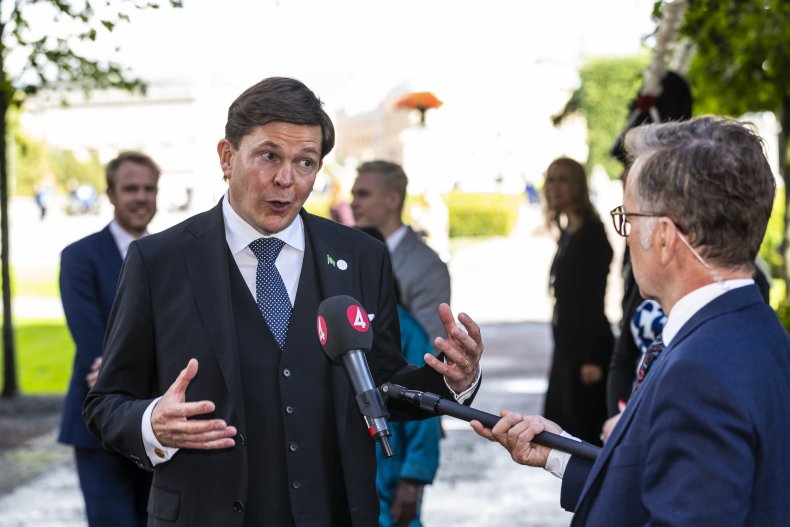Swedish Prime Minister Resigns After Becoming First to Lose Confidence Vote by Parliament
Swedish Prime Minister Stefan Lofven announced his resignation after becoming the country's first leader to lose a confidence vote in parliament last week and requested Monday that parliamentary Speaker Andreas Norlen form a new government rather than hold an early election, the Associated Press reported.
Lofven, head of the Social Democratic Party, has held the position since 2014. Although the Swedish constitution gives him the ability to hold an early vote, Lofven said that a "snap election is not what is best for Sweden," and he would remain in a caretaker role until a new government could be formed.
"The speaker will now begin work on proposing a prime minister who can be tolerated by the Riksdag (the assembly)," Lofven said. "The government will continue to govern the country for now but as the caretaking government."
Norlen, the only officeholder who can designate which party leaders can begin talks regarding Lofven's request, will ask party heads who may be capable of forming a new government.
For more reporting from the Associated Press, see below.

It is expected that Lofven, who heads Sweden's largest party with 100 of Riksdagen's 349 seats, will start these talks. His Cabinet, a Social Democratic-Green coalition, is a minority government that has relied on votes from the small Left Party to pass laws.
The no-confidence motion against Lofven was called by the nationalist Sweden Democrats party—which has been criticizing the Social Democratic Party for years—but it ultimately succeeded because the Left Party withdrew its support from the government over proposed legislation to tackle a housing shortage. Lawmakers voted 181-109 against Lofven, with 51 abstentions.
The political situation in Sweden now seems deadlocked.
Lofven has been able to get the Left Party back as an ally, but the small Liberals, which earlier supported the Social Democratic-led government, now want a center-right government. The Conservatives, meanwhile, still want a Lofven at the helm but doesn't want to made deals with the Sweden Democrats or the left-leaning Left Party.
In the center-right bloc, the Moderates, Sweden's second-largest party, wants its leader, Ulf Kristersson, as prime minister.
The last time coalition talks took place in Sweden was following the 2018 election that created a deadlocked parliament. It took four months of negotiations to produce a government that Lofven presented in January 2019.
Norlen told Swedish broadcaster SVT that the different parties now know where the others "stand" and promised that government formation talks would be faster this time.
Jenny Madestam, a political analyst with the Swedish Defense University, also believes it will be faster this time "because we are in the pandemic crisis still and also because we have this experience now from the autumn in 2018," Madestam told AP. "Nothing has changed in the parliament, actually."
In the present assembly, the left-leaning side and the center-right bloc have about 40 percent of the vote each.
None of the sides want to cooperate with the Sweden Democrats, a right-wing populist party that is considered extreme.
In Sweden, the next general election will be held on September 11.
Lofven, 63, said he was ready to head a government if that is what the Riksdagen wants.
"My party is ready to shoulder the responsibility to continue to lead our country forward together with other constructive forces," he said.


